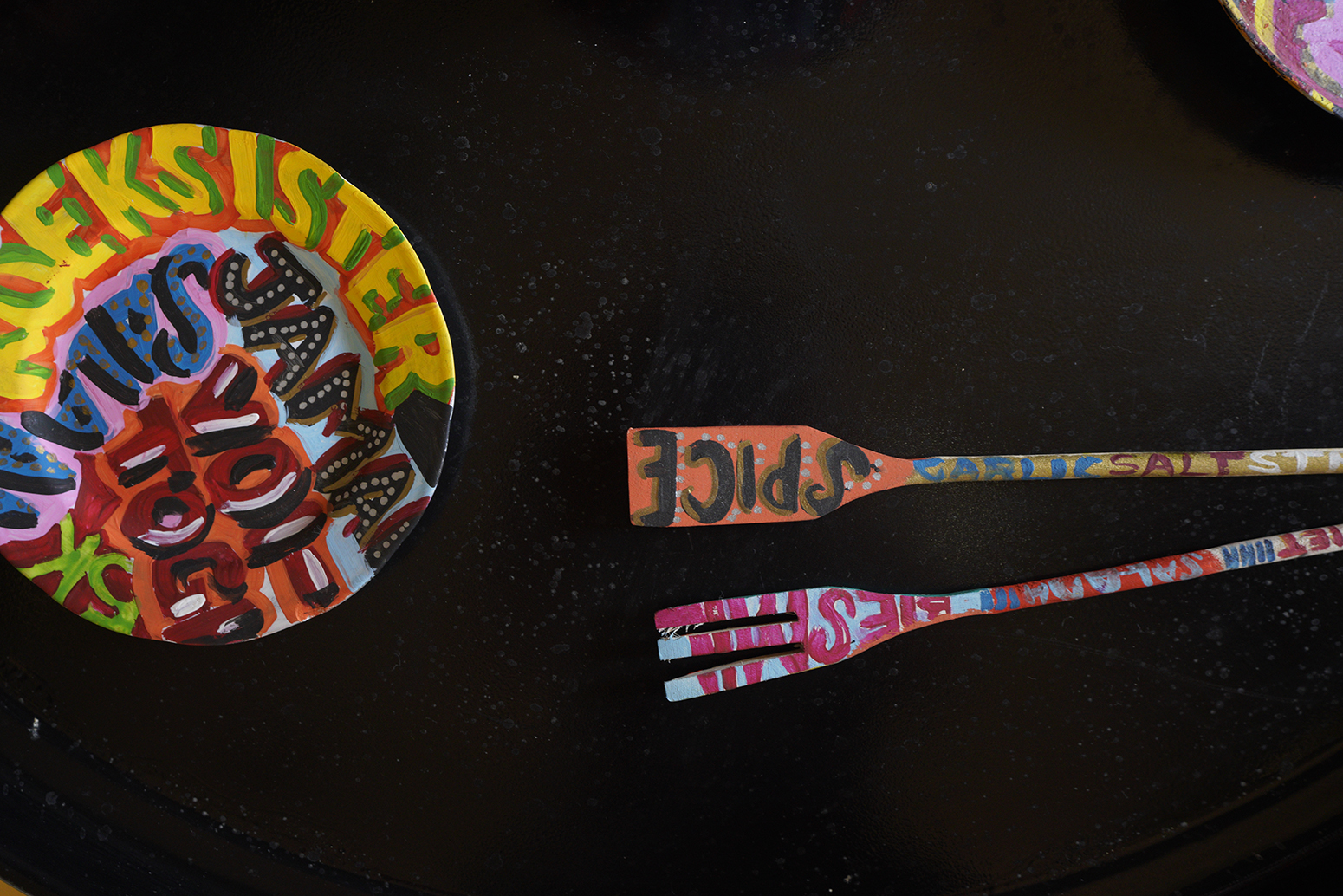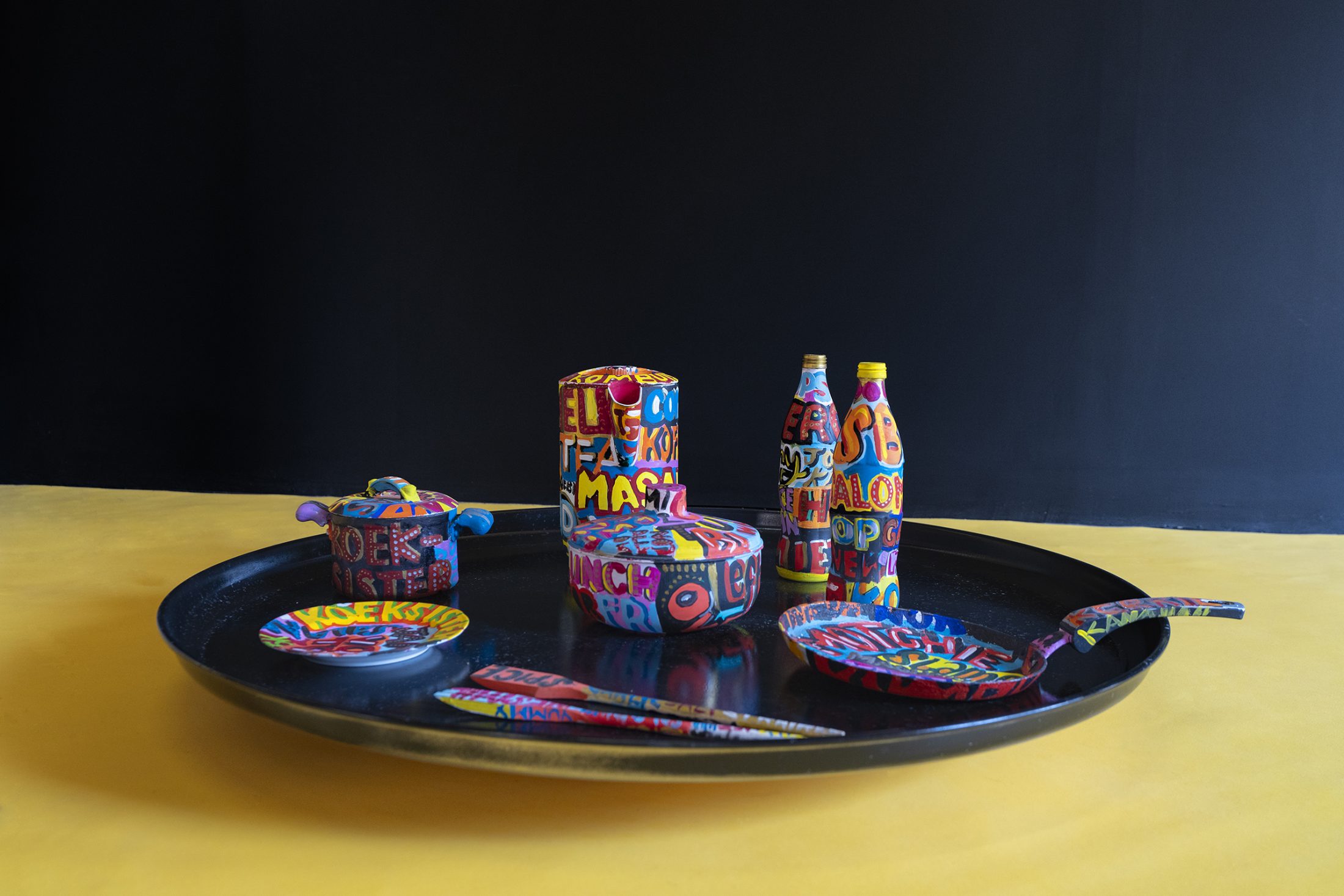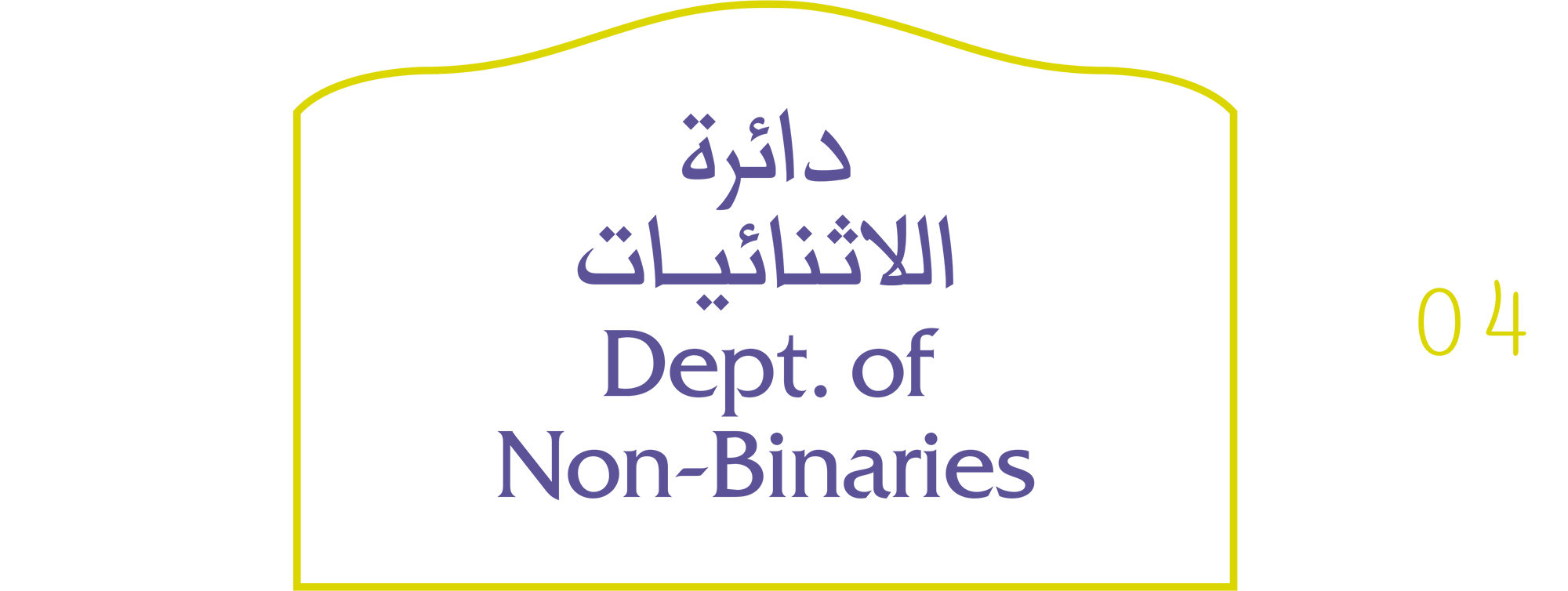Kombuis Afrikaans
2017
Various found objects, painted
In this work, Thaakierah Abdul engages with her own cultural identity, the Cape Malay community in South Africa. One of the primary stereotypes that she encountered in her research was of women cooking and existing only in the kitchen. Their identity was generally understood as feminine, weak, or submissive. While cooking does play a vital role for the Cape Malay people, it has always carried a crucial social and political function. In the past, slaves used the kitchen as a safe space to chat about their masters and to express themselves. Today, the kitchen continues as an important place for creating community spirit and sharing. Thaakierah Abdul decided to subvert this common stereotype by collecting used kitchen items and painting words in ‘Kombuis Afrikaans’ on them. Kombuis Afrikaans (‘Kitchen Afrikaans’) is a creole language that mixes English, Afrikaans, and Malay. It was created by slaves of the Cape but continues to be widely spoken throughout the Western Cape. Despite its ubiquity, it is considered a slang or vernacular, not a respectable or official language. Kombuis Afrikaans aims to uplift such usually unrepresented kombuis conversations into physical manifestations and so create a space for conversation, debate, and cultural celebration.


